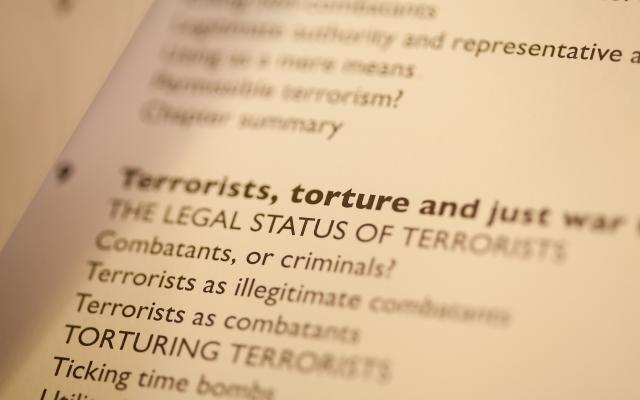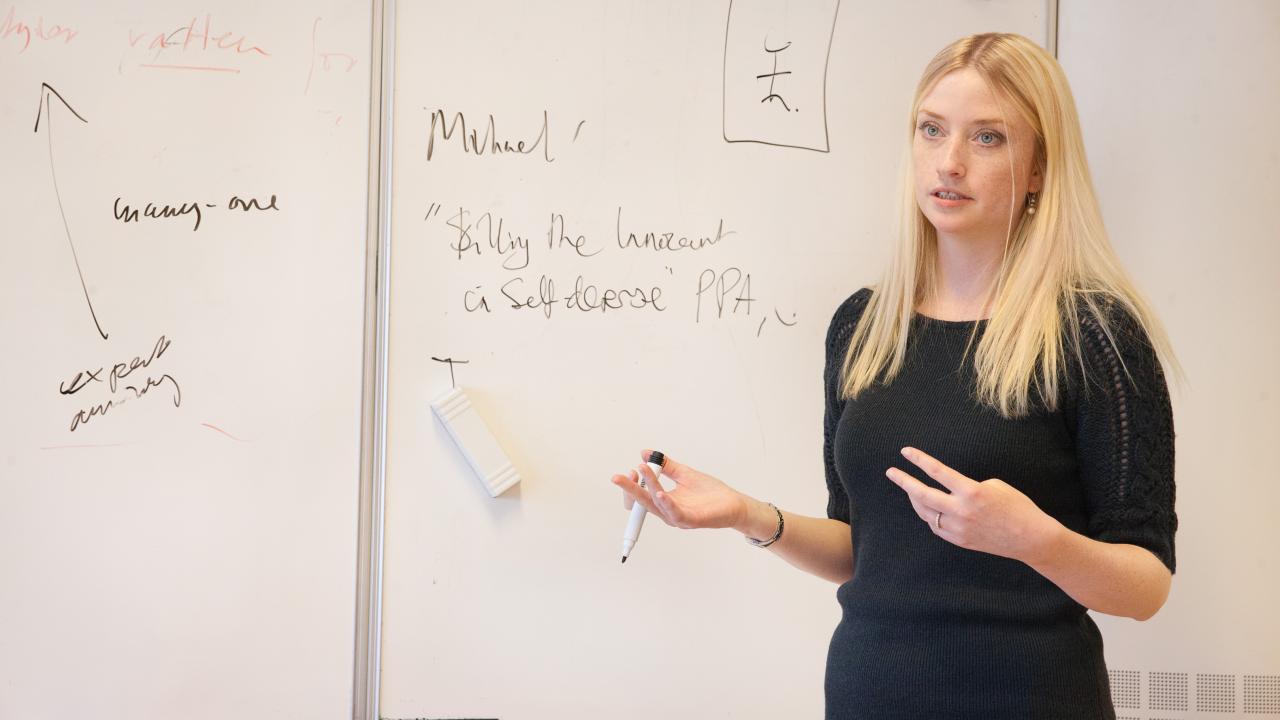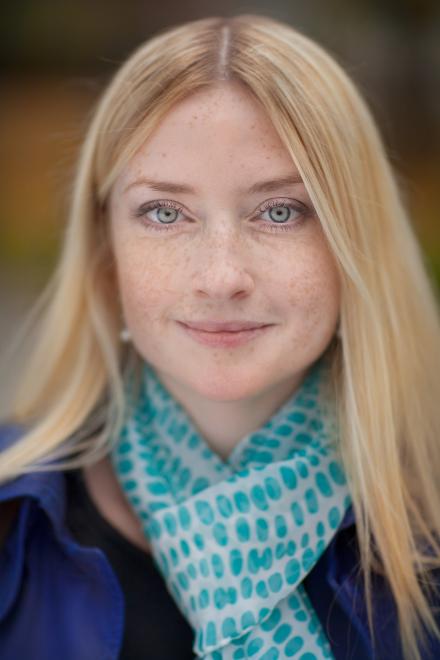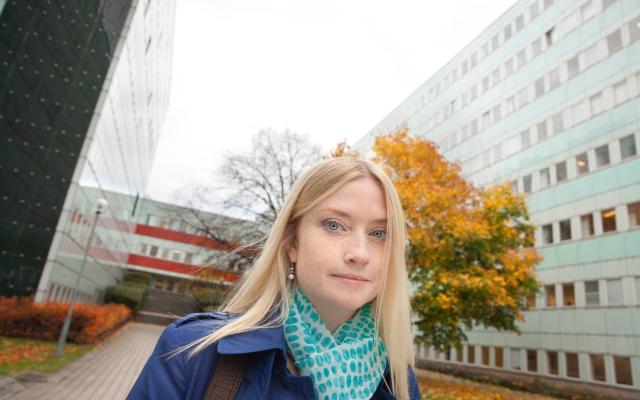

She is starting Sweden’s first research center for war ethics
The traditional view of ethics in war was worked out as early as the Middle Ages. Legitimate wars are only conducted between states, and soldiers who kill are not held responsible as individuals. But the view of the ethical rules in war needs to be revised in the opinion of philosopher Helen Frowe.

Helen Frowe
Professor of Philosophy
Wallenberg Scholar
University:
Stockholm University
Research field:
Ethics in war and peace
The Wallenberg Academy Fellow grant from the Knut and Alice Wallenberg Foundation is making it possible for her to build up a new center at Stockholm University to research ethics in war and peace.
The theories on the just war have traditionally been based on states as actors. It is originally a Catholic tradition to understand the morality of war, and can be traced back to thinkers like Augustine of Hippo and Thomas Aquinas. It is a philosophical framework that emphasizes the collective: war is fought between political units, not between individuals.
“Those who defend this view believe that war is sui generis, a unique condition that cannot be judged with the same moral rules that apply in regular life. When soldiers fight in war, they do so as a part of the collective, and not as individuals. But this is a perspective that can be called into question,” says Helen Frowe.
Frowe recently moved her research over from the University of Kent in the UK and has established a completely new research center: The Stockholm Centre for the Ethics of War and Peace at the Department of Philosophy at Stockholm University.

Controversial issues
The objective of the center is to explore the ethical rules in war and peace. Frowe mentions as examples a few controversial questions. Why don’t soldiers who kill stand trial? What obligations does the victor have when the war is over? How should we relate to the methods used to combat terrorism?
The traditional view of the just war is highly based on states and their highest political leaders, and completely misses the democratic development in the 20th century. It gives states special permission to use violence. War is justified virtually solely based on the defense of territory and a state’s sovereignty.
“A state can order it’s combatants to kill the enemy, and the killing is then seen as legal even if it takes place as a part of an illegal, unjust war. As a combatant, an individual cannot be punished.”
“In the UK, there is no corresponding grant that a researcher in philosophy can receive. As a Wallenberg Academy Fellow, I have the possibility of building up a research center at Stockholm University, which will be the first of its kind in Sweden. The ambition is to collaborate with researchers who study the ethics of war throughout Scandinavia.”
Terrorism changes the view
The fact that the traditional framework has its limitations is shown not least by the growing terrorism of recent years, where the attack on the World Trade Center on September 11, 2001 is the most dramatic example. Terror groups behave as separate actors and do not act on behalf of a state.
It is not entirely clear how such groups should be categorized. Are the members of a terror group to be seen as legitimate combatants, pure criminals or illegitimate combatants? It has become increasingly more important to figure out the extent to which single individuals and small groups can be held accountable in connection with acts of war.
However, it is not only on the basis of the growing terrorism that there may be reason to revise the ethical laws of war. It is a matter of a fundamental, moral level, says Helen Frowe.
“If it is morally wrong of me to kill you, do the conditions really change just because I join a group that has the goal of killing you? Or if I want to kill you for political reasons?”
Helen Frowe has herself mainly researched what moral status non-combatants have in war, such as aid organizations, and the view of killing innocents in self-defense. She has argued that those who indirectly contribute to maintaining an illegitimate war, such as by saving lives of wounded soldiers, can be killed for purposes of self-defense. This way of thinking could even be applied to organizations like the Red Cross, whose neutrality in war is often considered to entail a sort of moral immunity.
“Of course, it is controversial to point out a special organization and it happens that people get upset if they have not listened to the entire reasoning. As a philosopher, I normally use a more abstract language that does not obscure the outlook because there are actually interesting research issues here.”

Targets the public
Several of the questions at the new center can be linked to on-going conflicts, such as those in Syria, Iraq and the Ukraine. Political scientists and lawyers are being affiliated with the operation, and additional subject areas may be included in the future. The ambition is to collaborate with authorities and let politicians and other decision-makers partake of the research.
“We also want to reach out to the broader public. The ethics of war is an area that is of interest to many and I would like the research center to contribute to a more lively debate,” says Helen Frowe.
One example is the arrangement of the Wallenberg Public Lecture on the Ethics of War and Peace, an annual open lecture. The first lecturer was Jeff McMahan, Professor at Rutgers University, in May 2014.
“I am also building up a network between researchers from the Nordic countries, and there will also be collaborations between the university in Tel Aviv and Stockholm University, the US Naval Postgraduate School and Oxford University, amongst others.”
Text Nils Johan Tjärnlund
Translation Semantix
Photo Magnus Bergström
